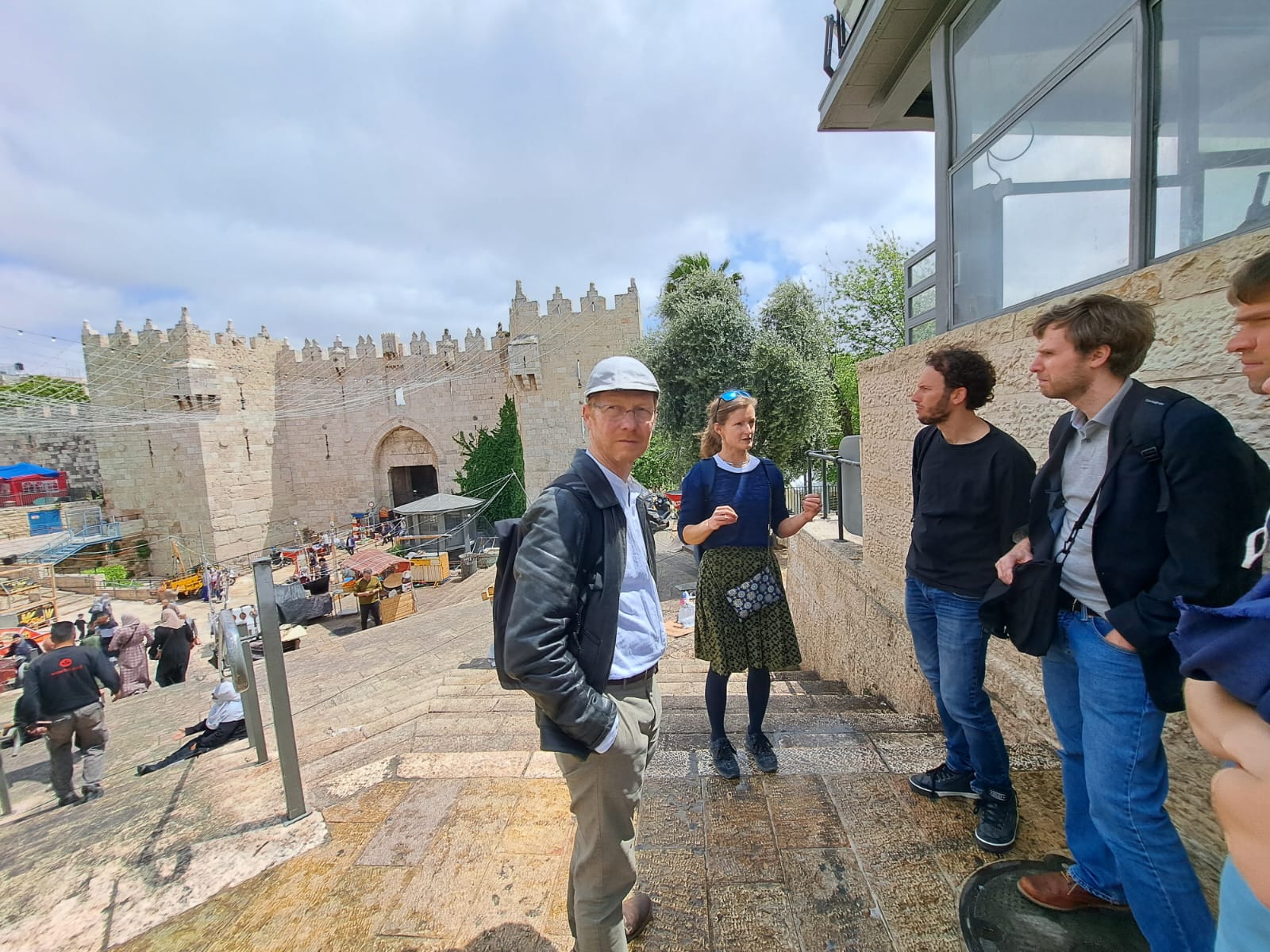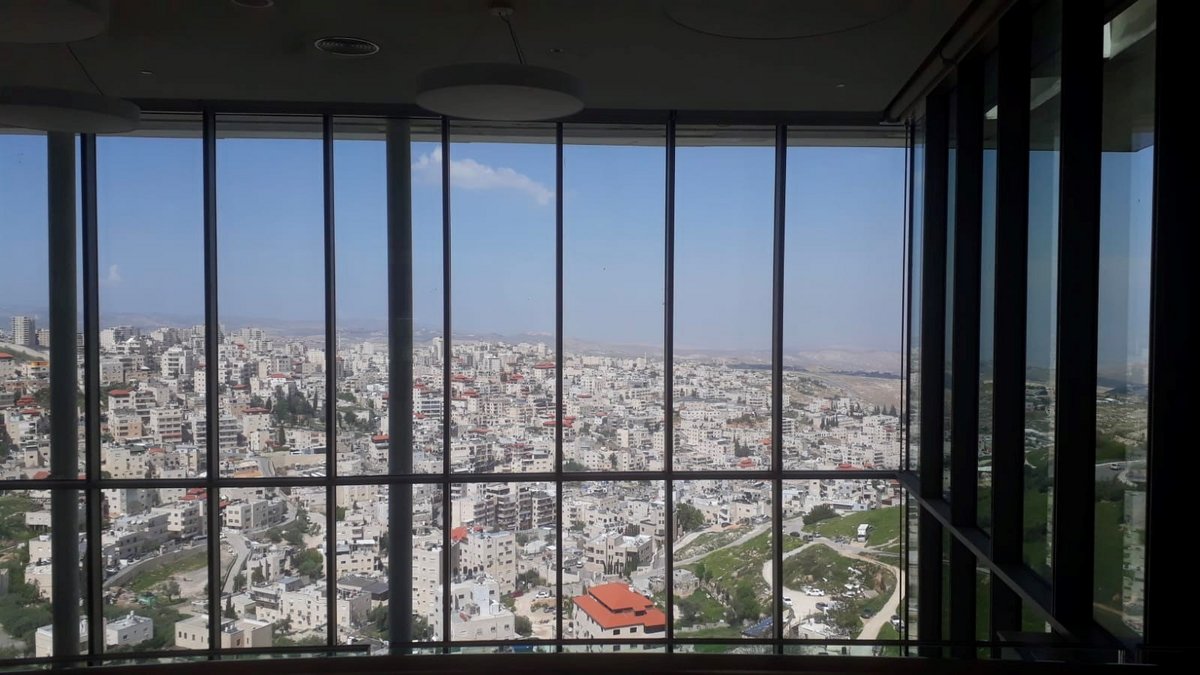
Design: Thinking, Making, Doing.
Between 18-21 April 2023, members of the Zukunftskolleg and the Martin-Buber Society of Fellows took part in a joint symposium at the Hebrew University of Jerusalem to think about design and think with design to solve big questions.
Participants from the Zukunftskolleg included Annamaria Bentea, Cristina Ruiz Agudo, Abena Yalley, Eduardo Luerson, James Wilson, Giovanni Galizia and Daniela Kromrey. Idit Ben-Or, Carolin Müller, Katharina Palmberger, Jasmin Spiegel, Christian Wollin, Christopher Roser and Peter Zilberg represented the Martin-Buber Society of Fellows at the symposium.
Led by Daniela Mavazaran and her colleagues, Katja Tschimmel and Frederico Granda, the symposium was intended to introduce academic researchers to the potential benefits of applying the ‘design thinking’ methodology to their research.
In order to explore the potential of this approach, symposium attendees identified a series of ‘wicked’ problems (complex societal issues that are difficult to define and seemingly impossible to develop solutions for). The iterative stages of the ‘design thinking’ approach was intended to furnish participants with a clear way of creating inter-disciplinary solutions to these complex multifaceted problems.
On the first day, 18 April, members of the Zukunftskolleg and the Martin-Buber Society of Fellows split into three groups, who visited locations of cultural significance in order to understand and observe these issues. Group work then led to the development of ‘stakeholder maps’, providing insight into points of view into their chosen topics.
19 April saw emphasis placed on developing or ideating creative ways in which to tackle these ‘wicked problems’. These thoughts were then further developed into prototypes which were then tested by peer review within the symposium and among the wider academic community of the Hebrew University of Jerusalem.
The final day, 20 April, saw presentations given on “Higher education and Research Innovation by Design”, by Violeta Clemente, University of Aveiro, Research Unit ID+, Portugal, and on “Science Communication Network Kiel”, by Dr. Carolin Enzingmüller, Consortium IPN, Muthesius Hochschule & CAU, Germany. This was followed by a roundtable discussion between Michal Shomer, Creator of Multi-Gendered Hebrew, Elad Yaron and Jonathan Ventura, Director of the Unit for History and Philosophy at Shenkar College, who collectively mapped out pathways for the future relationship between design theory and academia.
Although the ‘design thinking’ methodology was clearly articulated and embraced by the participants, the group also experienced moments of difficulty when attempting to fuse this new ‘user-centred’ approach with more traditional academic epistemologies. We look forward to welcoming members of the Martin-Buber Fellows to the Zukunftskolleg between 24-28 July 2023 and working together on this exciting project.
Text: James Wilson



